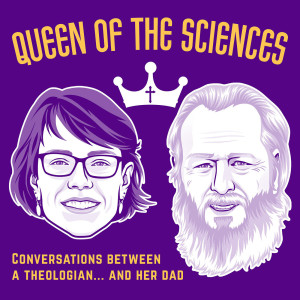
Tuesday Sep 24, 2019
What Is a Person?
Usually, when a person asks what or who makes for a person, it's to dehumanize some person or group of persons. Our intention in this episode is to head in the opposite direction. Dad takes us on a worldwind tour of Western civilization (which, frankly, he often does) to see that what counts as personhood or humanity has been under dispute from the get-go and continues to be disputed up to this very day. Meanwhile, I explore the striking fact that, in the doctrine of the Trinity, Father, Son, and Holy Spirit are called "persons"—coincidence or not? (Not.) What does trinitarian personhood imply about human personhood? And could a robust nature-person distinction actually solve all the besetting problems of the modern world?!
1. Locus classicus = classical location or point, namely the verse of Scripture that is the foundation for a doctrine. For imago dei ( = image of God), it’s Genesis 1:26–28; see also Genesis 9:6.
2. The Mesopotamian creation epic is Enuma Elish
3. Plato records Socrates’ attempt to die without the interference of hysterical women in Phaedo
4. The things I’ve written mentioned in this episode are: “Blessed Are the Barren” and Woman, Women, and the Priesthood in the Trinitarian Theology of Elisabeth Behr-Sigel
5. Dad discusses Leibniz vs. Voltaire & Spinoza in Paths Not Taken
6. John Locke, Second Treatise of Government
7. Thomas Jefferson, The Declaration of Independence
8. Thomas Hobbes, Leviathan
9. For more on the Lincoln-Douglas debates, see Harry V. Jaffa, A New Birth Of Freedom: Abraham Lincoln and the Coming of the Civil War
10. In this episode we both said that US law granted that enslaved Africans could be counted as 2/3 of a human in the census, but the actual number was 3/5 of a human (which is even less than what we remembered). Let us state for the record that all persons of African descent are 100% human.
11. Vladimir Lossky, In the Image and Likeness of God
12. Plato discusses the Forms in The Republic
13. Aristotle theorizes about “natural slaves” in Politics
14. Fritz Oehlschlaeger, Procreative Ethics
15. René Descartes ruined everything with his mind/thing distinction in Meditations On First Philosophy
16. Luther, Disputation against Scholastic Theology
17. Here’s the extraordinary story of the paralyzed man
18. "Leiblichkeit ist das Ende der Werke Gottes" (Bodiliness is the goal of the work of God) —Friedrich Christoph Oetinger
More about us at sarahhinlickywilson.com and paulhinlicky.com!
No comments yet. Be the first to say something!